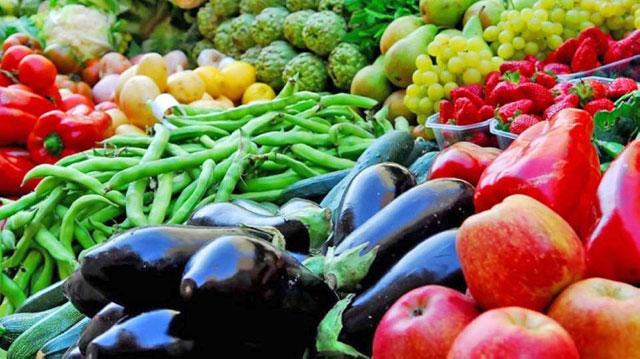You are here
Acting premier vows to reconsider taxes on agricultural sector
By Hana Namrouqa - Feb 07,2018 - Last updated at Feb 07,2018
AMMAN — Jordan is paying the price for its national stand on Jerusalem, which forced the government to enact harsh decisions under such difficult circumstances, acting prime minister, Mamdouh Abbadi, said on Wednesday.
"Brothers before friends refrained from helping us this year and the year before, but we cannot give up on Jerusalem, this is what we say and we will pay the price. We are counting on our people to bear the unbearable, for Jerusalem," Abbadi said during a meeting with farmers and agriculture sector leaders.
The Jordan Farmers Union (JFU) arranged for the meeting at the Sports City in Amman and invited the government for a dialogue as all components of the agricultural sector strongly condemned the government's recent imposition of a 10 per cent tax on some agricultural inputs and outputs without prior consultation with sector representatives.
At the meeting, Abbadi pledged that the government would reconsider its decision.
"Decisions are not sacred and they can always be revisited. We are here to say that we believe in dialogue," Abbadi told some 300 attendants.
The meeting brought together representatives of framers from all of the governorates, agriculture sector leaders, members of the Lower House, Minister of Agriculture Khaled Hneifat, Minister of Industry, Trade and Supply Yarub Qudah and Minister of Water and Irrigation Hazem El Nasser.
Abbadi called on sector representatives to form a small committee amongst themselves in preparation for sitting with Prime Minister Hani Mulki once he returns from his trip, noting that the Mulki should be back to the country on Friday morning.
“You have my word of honour that we will study every detail…,” Abbadi said, referring to the newly levied taxes on the sector.
While the acting prime minister underlined that the agriculture sector is important and has offered a lot, sacrificed a lot and suffered losses over the years, he also stressed that the country is going through conditions that are out of Jordan’s hands, including the closure of the borders with Syria and Iraq.
Following Abbadi’s pledge, Chair of the Lower House’s Agriculture and Water Committee, Deputy Khaled Hiyari, announced farmers’ “suspension” of their protests.
JFU President Oudeh Rawashdeh said at the meeting that the agriculture sector was struck more than once over the past few years, noting that if the government fails to demonstrate that it is serious in saving the sector, then agriculture in Jordan will cease to exist and importing will become the country’s alternative.
Representatives of the agriculture sector last week held a press conference in which they warned that the decision of imposing taxes on certain fruits, vegetables and agricultural machineries would have negative ramifications on the sector and the thousands of families it supports.
Such measures include resorting to judiciary, stopping the supply of produce to the local market as well as “other escalatory measures which will be announced in due time”, according to the union.
Imposing the tax would limit the use of and trade in agricultural technologies and machineries, the union said, warning that it will also cost Jordan the loss of its international markets and compromise the competitiveness that the country’s agricultural produce enjoy abroad.
The union said that the decision would also discourage investment in agriculture, drain the income of many families and lead to a hike in prices of food commodities and agricultural produce.
Meanwhile, Fares Hammoudeh, president of the Poultry Breeders Union, said that had the government consulted with sector representatives before imposing the taxes, it would have evaded this showdown.
Hammoudeh called on the government to annul its decision, warning that it would have negative impact in terms of surging prices of commodities. The unionist also said that the government should have imposed the tax on imported frozen chicken rather than imposing it on live local chicken.
“There are alternatives and we have put them forward. It’s not too late to have a dialogue over the decision and it’s not too late to correct mistakes,” Hammoudeh noted.
Related Articles
AMMAN — The Jordan Farmers Union (JFU) on Sunday called the agricultural sector to a consultation meeting later this week in order to decide
AMMAN — A farmers’ syndicate leader on Tuesday said that nothing tangible has been done yet by the government towards addressing the sector’
AMMAN — The Jordan Farmers Union (JFU) on Sunday demanded that the government annul its imposition of a tax on agricultural production’s inp

















